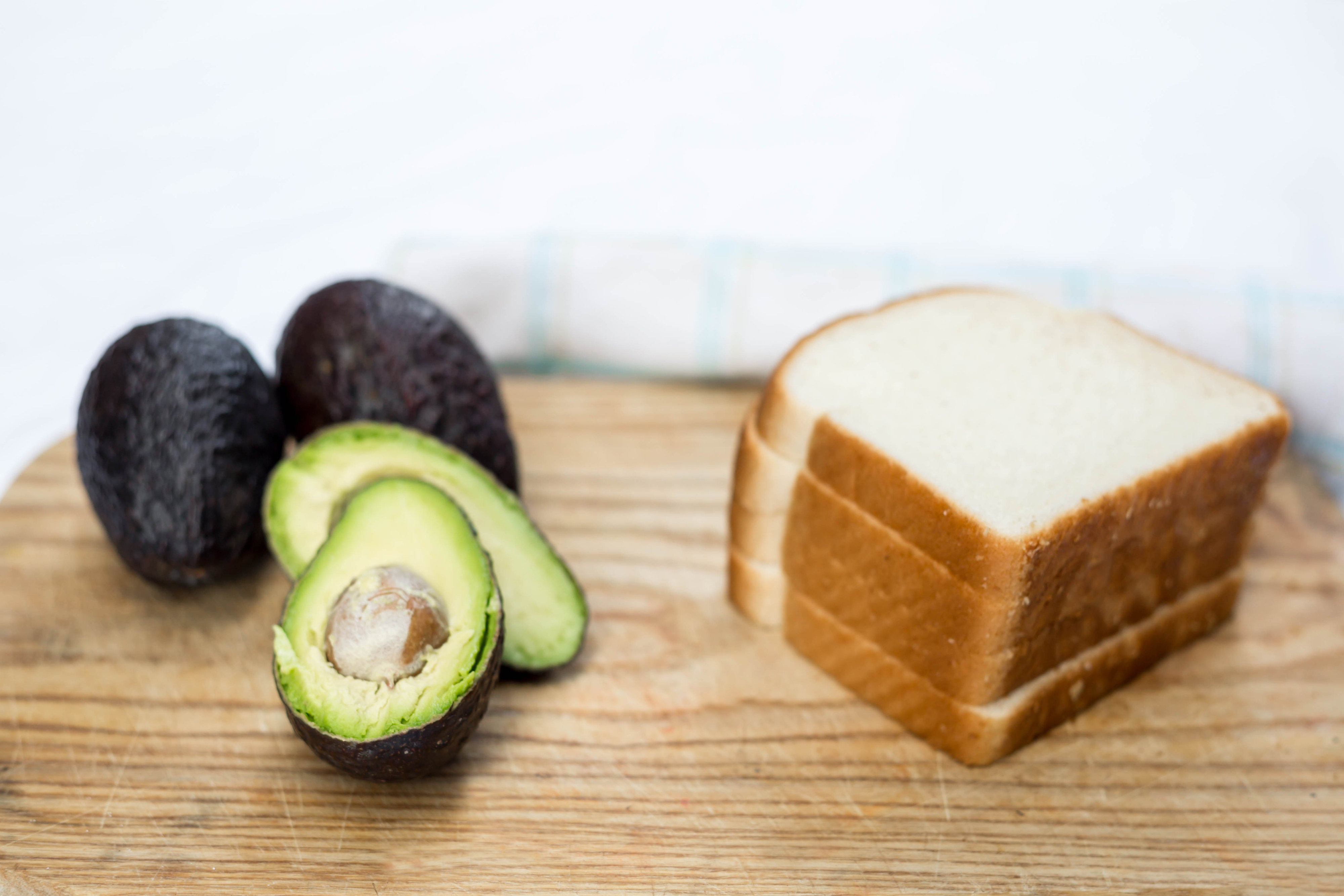This just in – a calorie is a measure of how much energy is in a food – that’s all!
But over the years we’ve been programmed to believe that calories are horrible little things that make us fat, which in actual fact this is not the case at all.
Calorie counting doesn’t take into account what you’re eating, just how many calories you are eating. As a result many people fear fat in a food since the label says it has 9 grams of calories per gram vs 4 calories per gram for carbohydrates and protein.
However, this way of thinking isn’t nutritionally sound. May I suggest that we think about it this way instead:
A NEW WAY OF THINKING
An avocado, for example, has about 227 calories and a slice of toast has 75 calories. Which sounds better? Most people would say the toast, but really the high quality, high fat calories from an avocado will keep you full longer and cause a release of hormones that tell your body to burn fat since it has to work harder to break down the fibre causing weight loss.
Sure, a slice of toast at a meager 75 calories means you can eat more, but processed food will tell your body to store fat because of the sugar spike and insulin release following that spike causing weight gain in the long run. So really the avocado is more nutritional and better for you, higher calories and all.
WHAT’S THE LESSON?
The moral of the story here? Food is so much more than just calories! Food is information for the body. And this applies to anything we consume. Our bodies receive this energy and information and have to decide how to interpret it and react with it.
For example, according to author Marc David in The Slow Down Diet, “the caffeine will literally tell your heart to beat faster, the bioflavonoids in your berries will instruct the body to keep tiny blood vessels strong and supple, to reduce inflammation and to slow down the ageing process of specific tissues.”
So the true value of food will never be found in calorie counting or on a label. It’s true worth comes from the nutrients it contains and the information it is conveying to your body.
QUALITY OVER QUANTITY – IT’S A CLICHE FOR A REASON
Elevate the quality of your food and you will never have to worry about counting calories again. With the simple idea of “what is this food saying to my body” we can easily determine if what we are eating will cause weight gain, disease or improve the quality of our well being and support weight loss. Bam! Mind blown, am I right?
LIMIT THESE 5 ANTI-NUTRIENTS IN YOUR DIET:
- Poor quality fats: hydrogenated oil, partially hydrogenated oil, fried foods, etc.
- Poor quality sugar: any food that contain high-fructose corn syrup, corn syrup, white sugar, glucose, and artificial sweeteners.
- Poor quality white flour: mass produced pasta, breads, cookies, muffins, bagels, crackers, cereals, sugar-sweetened oatmeal, commercial granola bars, chips, pastries and donuts.
- Poor quality dairy: mass produced non-organic, hormone-containing cheese, milk, yogurt, cream cheese, cottage cheese, flavoured milks, and snack-foods with cheese byproducts.
- Poor quality meat: Fast-food meat, processed meat like packaged cold cuts and hot dogs, meats in frozen prepared food that isn’t hormone free or grass fed. I would add to this that it’s important to limit any meat that is raised inhumanely and not treated with care.
REPLACE THEM WITH HIGH QUALITY, FAT BURNING NUTRIENTS LIKE THESE:
High quality fat: Avocado, olives, fresh fish, nuts and seeds, nut butters, free-range eggs and meat, butter and ghee. Cold-press oils like olive oil, sesame oil, coconut oil, and nut oils.
High quality sugar: raw honey, maple syrup, all fruit and vegetables.
High quality grains: organic varieties of rice, quinoa, corn, buckwheat, oats, lentil, and chickpeas.
High quality dairy: nutritionists and dieticians disagree about the merits of dairy and that’s because commercial dairy is extremely low in quality. I would recommend keeping dairy products to a minimum and when you do choose to consume it, chose raw and organic.
High quality meat: As best as you can, choose meat that is labeled hormone free range, grass fed and/or organic. If you can go one step further, because part of a local farm CSA and support farmers that are working hard to make sure animals are treated humanely.



